4.6x ROI - How investment in wellbeing pays back

Dr. Jazz Croft
26 September 2024
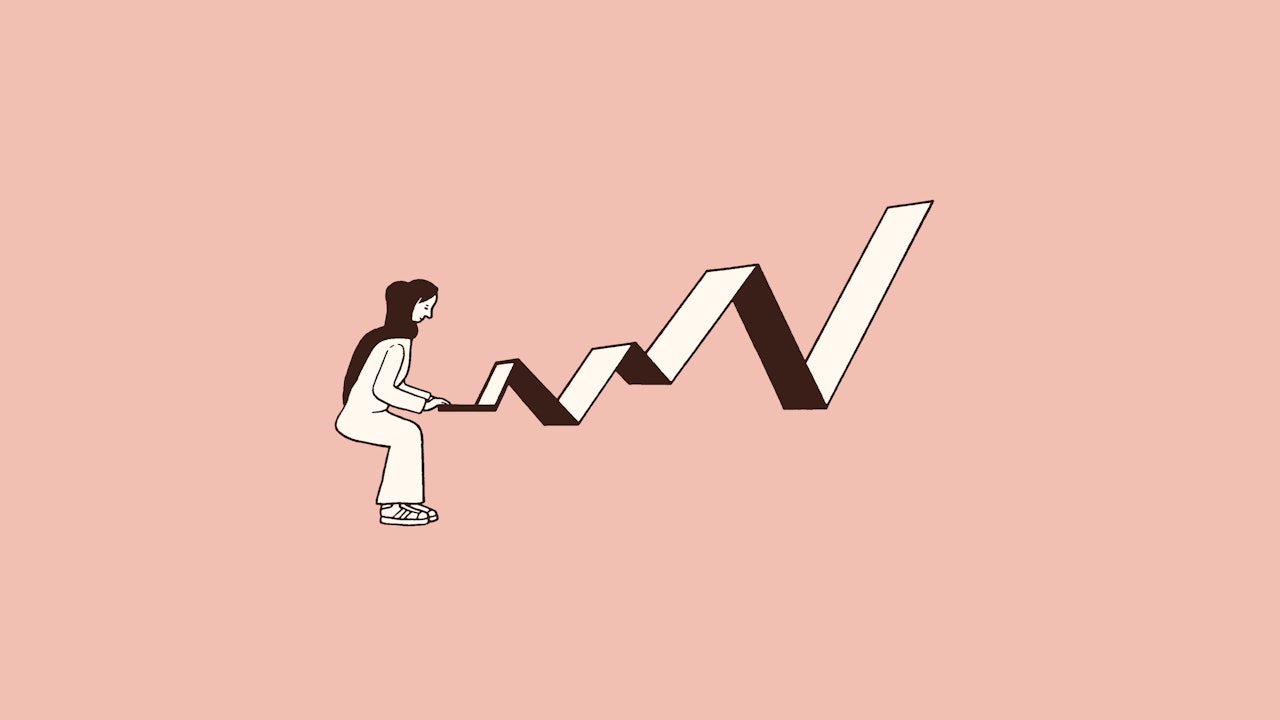
Content
- How investing in professional support nearly doubles ROI
- Leading with evidence
- Measuring Unmind's impact
- Understanding wider impact
With so many employee wellbeing platforms available, it’s important for organizations to choose solutions that truly make a difference. To ensure real impact, businesses need tools that engage their workforce, are backed by evidence, and improve both wellbeing and performance.
By measuring performance and the return on investment (ROI) from wellbeing initiatives, companies can see how these programs enhance productivity and drive financial outcomes.
According to a study by Oxford University of over 1,600 US companies and 15 million employee surveys from Indeed.com, wellbeing supports productivity. They found:
- The Top 100 ‘happiest’ companies outperform S&P 500 and Dow Jones by 20% since 2021
- A one-point increase in company happiness (on a 1-5 scale) predicts approximately a $2-3 billion USD increase in annual profit
This means that investing $1,000 in companies with employees who report higher well-being in January 2021 would leave an investor with around $1,300 by the start of March 2023, compared with roughly $1,100 had they invested instead in the S&P 500.
The Health and Safety Executive (HSE) champions workplace mental health support as “not just a compassionate choice but also a strategic one” – pointing to data that shows 25% higher productivity, among companies that prioritize mental health.
How investing in professional support nearly doubles ROI
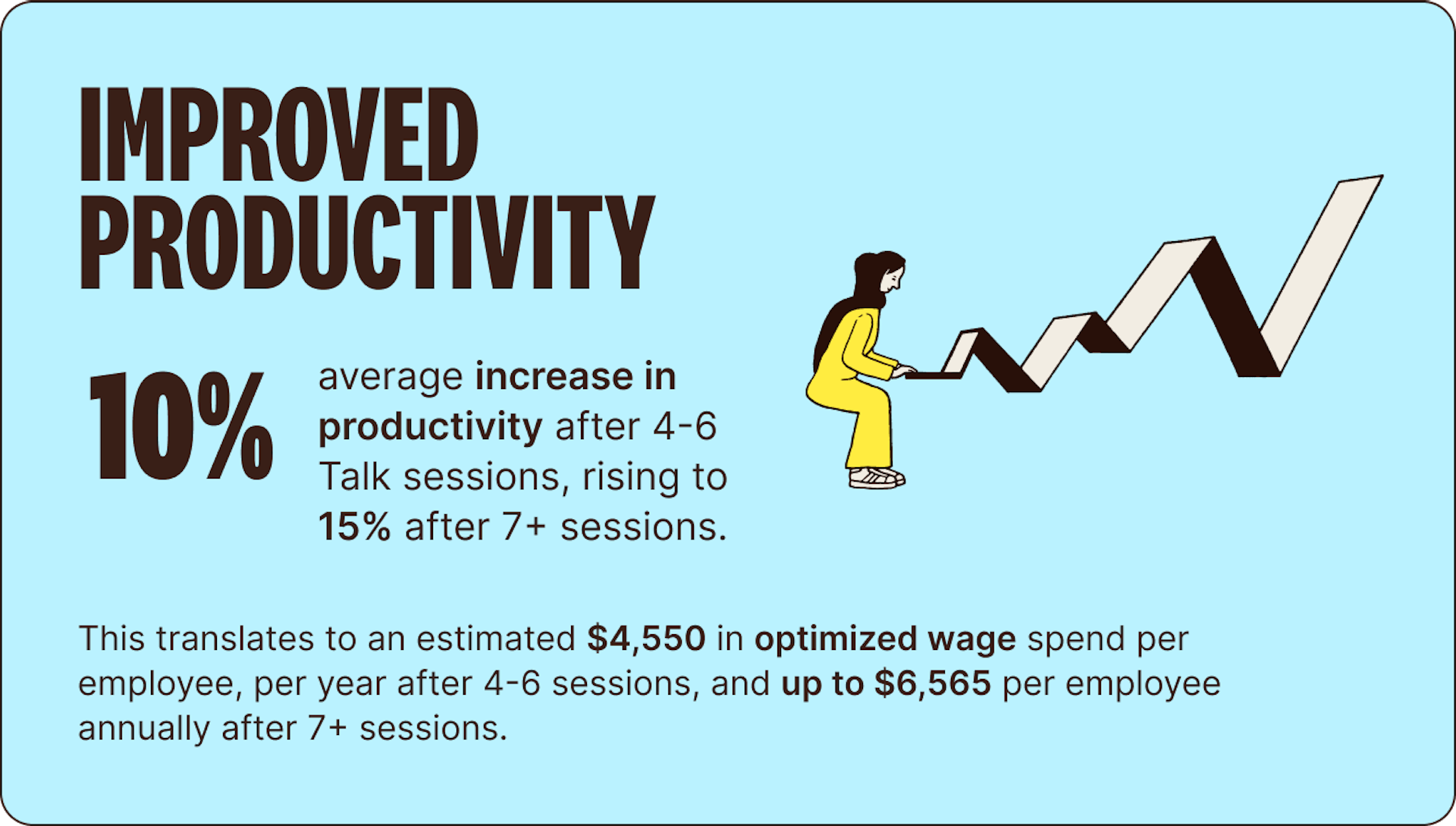
This matches up with our own ROI calculations and global research. Using scientific estimates and client usage data, our calculations show that for self-help content, organizations gain 2.4x ROI based on engagement with Unmind’s science-backed tools and content.
While these returns deliver a tangible impact for organizations, we see this return nearly double for our clients who invest in Unmind Talk, which provides employees access to professional coaching and therapy, 4.6x ROI when used in combination with self-help content.
Based on data from Talk users, we see significant improvements in mental health and performance outcomes. We saw a 10% average increase in productivity after 4-6 Talk sessions, and after 7+ sessions, productivity improves by 15%. This translates to $6,565 of optimized spend per employee annually based on reduced absenteeism and time at work negatively affected by mental health (presenteeism).
From platform launch to subsequent years of access, we see the platform deliver returns for employers thanks to embedding access to Unmind in their organization.
Here’s your explainer on our ROI calculations and our methods for quantifying the impact of Unmind on financial performance.
Leading with evidence
As a science-backed platform, we do our homework and show our workings. As we continue to grow and innovate with new platform features and services, so do our ROI capabilities. Currently, our estimate is based on two features of our platform, Talk and self-help content, and we’re developing capabilities to capture the wider impact of the platform.
To deliver the most reliable and accurate ROI figures, we model our estimates based on peer-reviewed, scientific trials that measure the impact of Unmind on wellbeing and productivity. As our research grows, we’ll build on these figures with findings on Unmind’s impact from client trials with international organizations.
Measuring Unmind's impact
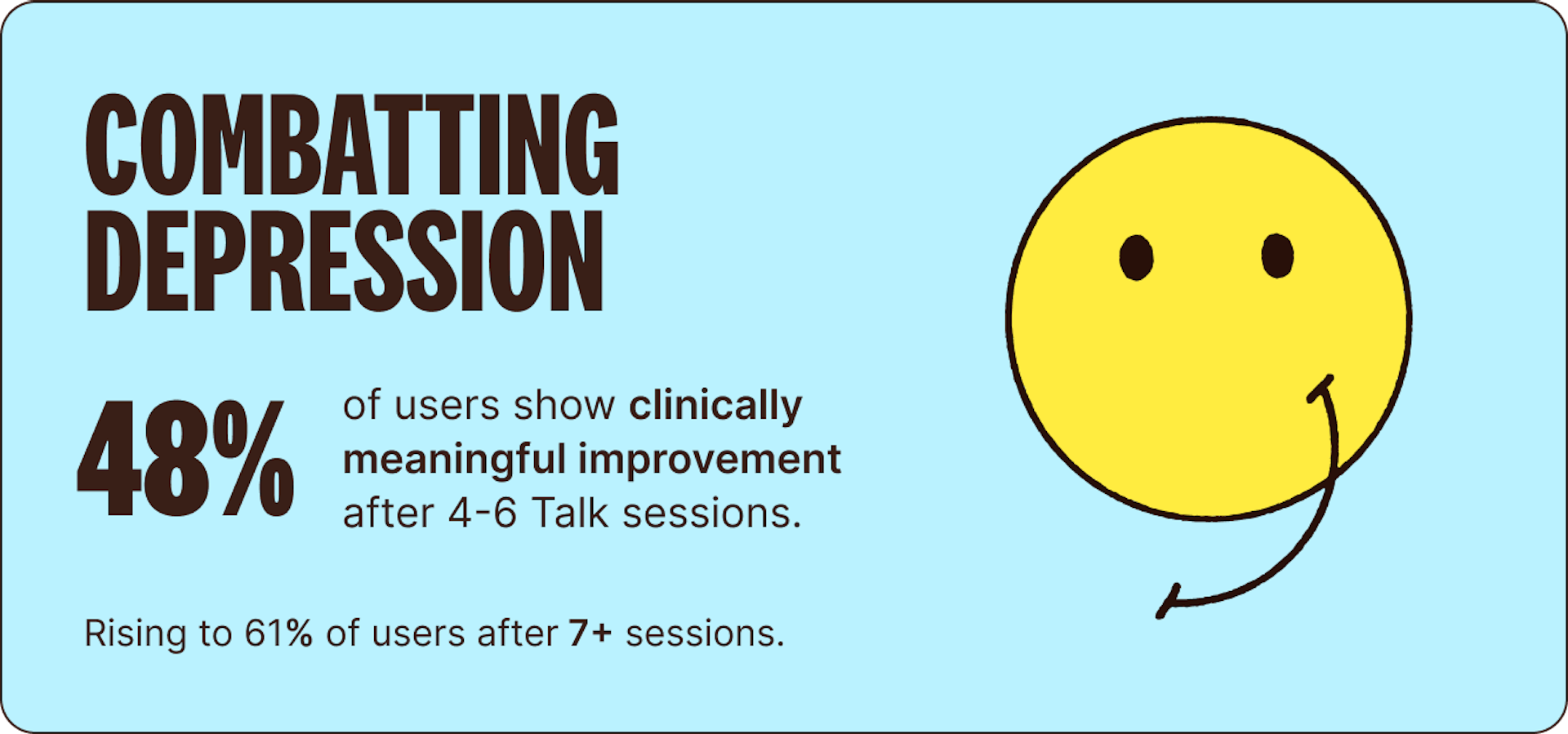
Our current model takes impact data from the longest-established platform feature: our content and science-backed tools. As part of our scientific research program, we’ve conducted trials of the impact of our tools and content managing low mood and poor sleep developed by our in-house psychologists.
A key outcome of these studies to measure the impact of Unmind is improvements to performance thanks to improved mental health. We use the WPAI (Workplace Productivity Activity Impairment) measure which is a widely-used measure in scientific studies, of work impairment specifically due to mental health difficulties. This includes time away from work and time at work where work is negatively affected by mental health difficulties (presenteeism).
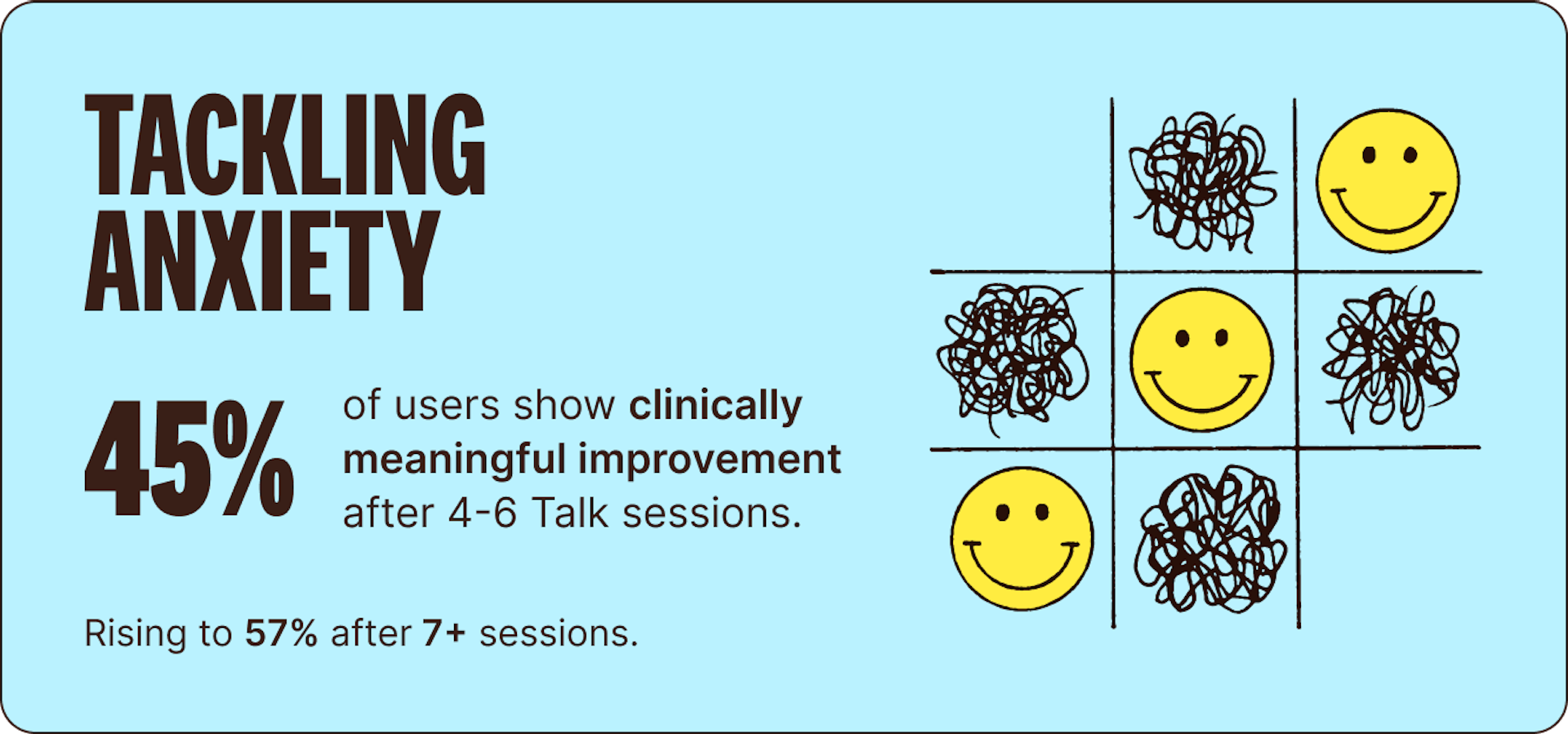
Our studies show that using the Unmind platform to support sleep and manage mood has a positive impact on productivity. For our sleep tools, these savings in productivity are estimated as an equivalent of $13,200 USD saving per year, per employee based on trial results.
To generate ROI estimates, we combine data on client usage and meaningful engagement with our platform, the cost of Unmind to our clients, and the estimated improvement in productivity based on our scientific trials.
Understanding wider impact
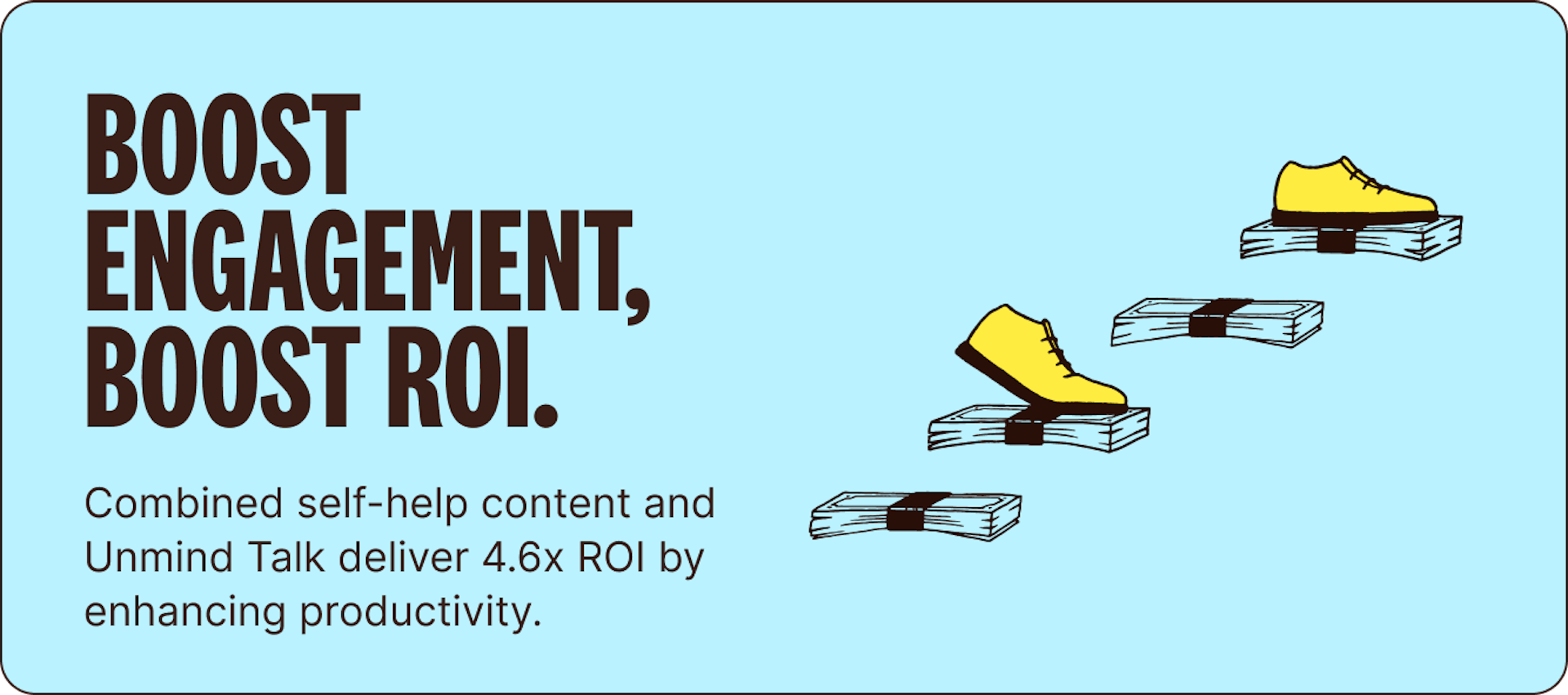
Our ROI calculations are currently based on features of our platform that capture a small part of the overall impact of Unmind on performance and wellbeing.
As our research grows, our estimates will increase to reflect the platform's positive impact and increased ROI using insights from client and scientific research data. This will include reliable, transparent estimates of ROI from our range of platform features including access to manager training, our AI coach Nova, and professional services.
As we’ve explored, wellbeing solutions are everywhere. To get a reliable return on investment and make a real impact on organizational wellbeing and performance, solutions must be developed and tested by mental health practitioners and experts.
With 95% of wellbeing platforms on the market lacking scientific evidence, it’s critical to question the return on investment, evidence base and credibility of workplace wellbeing solutions to avoid empty promises and help your teams thrive.
Want to learn more, and start building your company’s toolkit for wellbeing transformation? You can start today, for free. Download The Unmind Blueprint.
About the Author

Dr. Jazz Croft, Senior Scientific Liaison
About the Author
